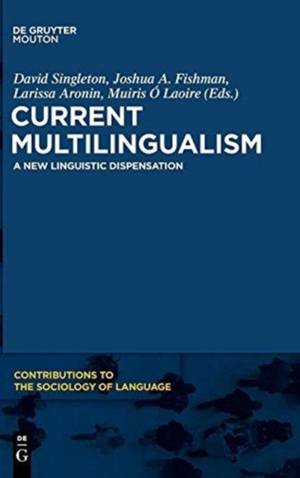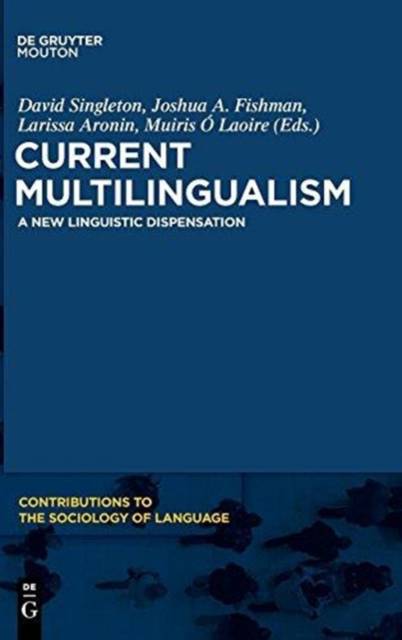
- Retrait gratuit dans votre magasin Club
- 7.000.000 titres dans notre catalogue
- Payer en toute sécurité
- Toujours un magasin près de chez vous
- Retrait gratuit dans votre magasin Club
- 7.000.0000 titres dans notre catalogue
- Payer en toute sécurité
- Toujours un magasin près de chez vous
Current Multilingualism
A New Linguistic Dispensation
Description
This volume approaches contemporary multilingualism as a new linguistic dispensation, in urgent need of research-led, reflective scrutiny. The book addresses the emergent global and local patterns of multingual use and acquisition across the world and explores the major trends that characterize today's multilingualism. It is divided into three parts on the basis of the broad themes: education (including multilingual learning in its general, theoretical aspects), sociolinguistic dimensions and language policy. The book's fifteen chapters, written by renowned international experts, discuss a range of issues relating to the quintessential and unique properties of multilingual situations - issues relevant to the challenges faced in different ways by researcher and practitioners alike. All the contributions share a focus on currently operative patterns of interaction between contexts, events and processes.
Spécifications
Parties prenantes
- Editeur:
Contenu
- Nombre de pages :
- 381
- Langue:
- Anglais
- Collection :
- Tome:
- n° 102
Caractéristiques
- EAN:
- 9781614513896
- Date de parution :
- 15-03-13
- Format:
- Livre relié
- Format numérique:
- Genaaid
- Dimensions :
- 156 mm x 234 mm
- Poids :
- 712 g

Les avis
Nous publions uniquement les avis qui respectent les conditions requises. Consultez nos conditions pour les avis.





